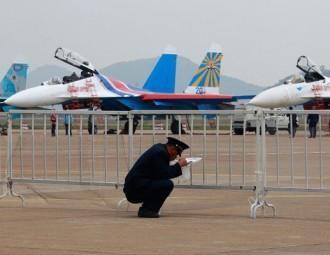Andrei Yahorau: Secret agreements are most dangerous under the current regime

Wider collaboration with Russia in the military sphere brings no good for the independent Belarus; moreover, it might even impede the development of the relationship with the EU in the future.
This opinion in the talk with the EuroBelarus Information Service shared Andrei Yahorau, political scientist, the director of the Centre for European transformation.
Giving his evaluation on the agreements between Belarus and Russia that provides for the dislocation of an air-base and batteries of S-300 anti-aircraft missile systems, the expert noted that in relation to the influence on our independence this decision is not a simple one.
Post-Soviet way of thinking
“On the one hand, we have to understand that these agreements are in line with the previous arrangements of Belarus and Russia on creating a common air defense system. Besides, Russian military defense facilities are dislocated at the Belarusan territory as far back as the Soviet times”, - recalled Andrei Yahorau.
“But widening such collaboration brings no good for the independent Belarus. Moreover, these arrangements might be connected with some secret agreements with Russia which we cannot estimate publicly and cannot control the situation and understand in what this all is going to develop. And such agreements are of biggest danger under the current regime”, - the political scientist stated.
He doesn’t exclude the possibility that Minsk can get some economic preferences from Moscow by “selling” such arrangements.
In the negotiations with the EU military questions are at the sidelines. So far…
Will the new Belarus-Russia military arrangements influence the Belarus-EU relationship? As if we consider West-2013 military drill, it not encouraged by our western neighbours.
Andrei Yahorau noted that the discussion of the military questions can impede the development of the relationship with the EU in the future under their wider collaboration.
“But today these issues are far from being at the top of the agenda. Belarus is not in the situation when normal bilateral relations with the EU can be discussed. Moreover, we don’t even have adequate negotiation process about the improvement of this relationship. For now only half-closed negotiations about the possible start of normal dialog are going on. That is why questions of such kind are possible only in the foreseeable future”, - the expert noted.
There is no doubt that if someday the question of relations’ normalization and wider cooperation is going to be decided, it will appear on the agenda. And the European Union will possibly voice its discontent in relation with the dislocation of Russian military facilities, conducting military drill and forcing military aggression towards neighbors, noted Andrei Yahorau.
-
03.01
-
07.10
-
22.09
-
17.08
-
12.08
-
30.09








































